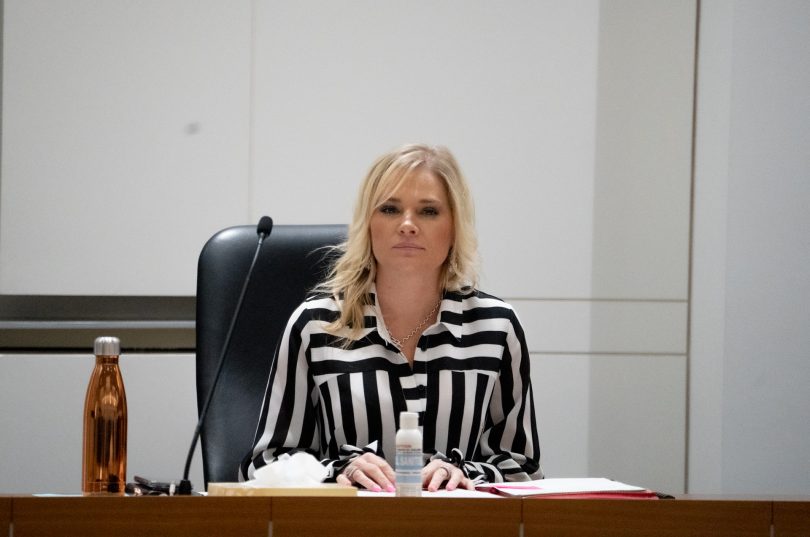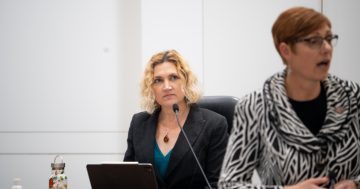
Nurses were highly visible on the frontlines of the Territory’s COVID-19 response. Photo: Supplied.
In a matter of days, yet another major review of the workplace culture across the Territory’s health system will be published.
And without even knowing what it says, there’s already concerns little will have changed.
It was revealed last week the union representing the Territory’s nurses and midwives withdrew from the group overseeing culture reform last December as it became “increasingly untenable” for it to remain a member.
Australian Nursing and Midwifery Federation (ANMF) ACT branch president Matthew Daniel described the oversight group as moving too slowly and failing to make enough progress.
Mr Daniel said the decision to withdraw followed the second annual review which was “quite damning”, particularly in regard to instances of bullying.
Mr Daniels’ withdrawal letter to Health Minister Rachel Stephen-Smith was made public last week – ahead of the government being expected to make its final review of the report public.
That first review, which was announced in 2018, delivered a scathing assessment of the public health system’s culture and highlighted concerns about bullying, burnout, mistrust and overwork.

Australian Nursing and Midwifery Federation ACT branch secretary Matthew Daniel wrote to the Health Minister last year to confirm the union would withdraw from the oversight group. Photo: Lottie Twyford.
Following the release of this report, the government formed a group intended to oversee cultural reform (the Cultural Reform Oversight Group).
As part of this process, it agreed to conduct an independent review of the implementation of the recommendations from the initial report.
That group included representatives from ACT Health, Canberra Health Services and other stakeholders.
Until last year, the union was also a member.
But last December, the union gave up.
In a letter to Health Minister Rachel Stephen-Smith, Mr Daniel blasted the group as an ineffective forum for addressing the workplace culture issues facing nurses and midwives.
“Given that the annual review marks the second year of the reform program, the ANMF is of the view that the underwhelming results reported in the annual review are not due to the long-term nature of cultural change,” he wrote to Ms Stephen-Smith.
“[We are] concerned that the results may in fact reflect a lack of urgency, or inability, to achieve real change.”
Mr Daniel told Region that concerns about failing human resource (HR) policies as well as bullying and harassment were still being reported to him by members.
“After three years, we would expect there to have been significant turnaround … but any change there is will have to have happened in the space of one year as the progress was very slow over the first two years,” he noted.
“There was some great early work done in the space but it was all around the thinking and the planning and those sorts of things … not so much the doing.”
Once the final review is tabled, the health system is expected to take control of the culture reform process.
But Mr Daniel is worried the system remains resistant to change and this may slip unless the hospitals’ progress is monitored by the directorate.

Opposition spokesperson for health Leanne Castley questioned Health Minister Rachel Stephen-Smith last week about the withdrawal of the union from the cultural reform oversight group. Photo: Region.
Opposition spokesperson for health Leanne Castley last week questioned the Health Minister about the group’s decision to leave the oversight group.
Ms Castley said she was shocked to learn the group had withdrawn and accused the Government of being more concerned with avoiding negative media attention than with addressing real problems.
“Improving the workplace culture for our frontline staff is vital in ensuring that the ACT has an effective and efficient health system,” Ms Castley said.
“It is shameful that the Minister’s group has been slammed by the union as not doing enough for nurses and midwives’ workplace culture in the short and long term.”


















